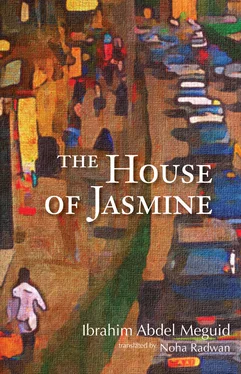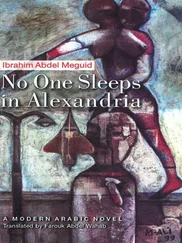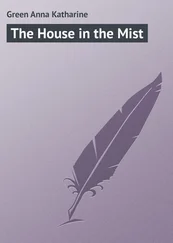“Of course you were busy planning to kill ‘Abdu al-Fakahani and Holy Yahya,” Hassanayn said, and we all laughed loudly. Then we asked Hassanayn why he hadn’t come to the café in the summer.
“You weren’t here,” he said.
#
“Of course you’re bitter, because you fought in the wars twice,” I said to ‘Abd al-Salam on the road. We had left the café and it was almost midnight. We realized, a bit too late, that Hassanayn had left us and was waiting alone at the bus stop. A little while later, Magid entered his house on Mosque Street. As usual, I was left alone with ‘Abd al-Salam. We lived on the same street. He lived in the middle, and I lived at the end, where it overlooks the sea.
We walked in silence, broken only by a distant stifled moan coming from the police department. I shivered in the November breeze. All the stores on both sides of the street were closed.
“No, I’m not,” he finally answered.
We walked along, sometimes moving away from each other, then getting closer together again.
“What do you know about that villa on our street, the one surrounded by jasmine trees?” I asked him suddenly. I don’t know why I chose to ask him at that particular moment.
“Have you seen anyone in it?” he asked. He knew what I wanted to talk about.
“Every day, in the early morning, I see a beautiful face looking out the window, a face as bright as light itself. Today, she waved at me.” We returned to our silence. The street was uneven, and I almost tripped several times.
“Stay away from the house of jasmine.”
I didn’t understand. Something made me hesitate to ask him why, even though I wanted to. The scent of jasmine had attracted me ever since I had moved from the south of Alexandria to the north. The villa, standing behind high walls crowned with white and yellow flowers, seemed mysterious and magical. Its high round windows, its circular walls, its marble columns — everything about it seemed to have been made carefully and painstakingly. The face I saw in the mornings and evenings excited my imagination and curiosity, awakened my desire to get married. I could not confess any of this to ‘Abd al-Salam.
“This house of jasmine is older than you or me,” he said. “My mother and father and everyone else knows that. I was spanked repeatedly when I was a child for climbing that wall to pick a few jasmine flowers. The owner of the house and his wife prefer to remain isolated, and don’t mix with anybody. They have only daughters — the most beautiful of all creatures. Everyone knows this, and only a lucky few have ever seen them. It may happen by chance. I don’t believe you when you say that you see the girl’s face every day. The man and his wife don’t allow their daughters to go out into the street for school or work, and they don’t let them stand at the windows, either. You may be lucky enough to see them once every so often in the very early morning — at dawn, before the man and his wife get up— but it rarely happens at night. Darkness enfolds the garden, the high windows are closed, and the thick blinds are pulled down, whether it’s winter or summer. I had forgotten that the house was on our street, and I don’t even smell the scent of jasmine anymore. Only once did I long for it, when I was trapped with the third army. Can you believe that? The air was full of the smell of smoke and gunpowder, and for a moment there, like a bright flash of light, I could smell jasmine. By God it happened, but only once. After I returned home, I watched the windows for a while, but I was not as lucky as you are, to catch even a glimpse of the only daughter left in the house. . ”
“How do you know all that?” I asked him at once, as if I could hardly wait for him to finish his last sentence.
“Secrets get revealed despite all efforts to conceal them. All of Dikhayla knows the secret of that house. A strange event occurs every few years. One of the girls suddenly arrives at the house in a taxi with a man in broad daylight, carrying a baby. It is the same taxi each time, and the same driver. She looks around for a few minutes before the iron gate opens for her, looks at the surrounding windows and balconies, as if to announce her arrival. That’s how people know that one of the daughters was married the previous year.”
“A strange family!” I said as if I were letting out a sigh.
“No one knows what’s right and what’s wrong,” he said cryptically, and then stopped and held my hand. At that moment I was thinking that ‘Abd al-Salam had his own secrets, and that I didn’t really know him that well. A flock of white sheep came out of a side alley raising up a small cloud of dust. It was a strange sight at that time of night, and it seemed that the flock, which was now passing in front of us, was endless.
“Do you notice something?”
“Most of the sheep have three legs. Most of them limp.”
“They all do.”
I almost confessed that I was frightened. ‘Abd al-Salam said that he felt that he was going to throw up. The flock came to an end, and a man appeared behind it, his body and neck bundled in several layers of clothes.
“He also has one leg, and is hopping with a cane.”
I was covered in sweat and found that ‘Abd al-Salam was leaning heavily on my arm. We trudged along in complete silence. We were in the vacant lot that leads to our street and almost out of Dikhayla. My nose was racing ahead of me as usual to smell the jasmine. Then we stopped. There was a taxi, its headlights turned off, stopped in front of the villa. The iron gate opened and we saw her step out in a flowing white wedding dress that shimmered in the darkness. She wore a crown, whose gems were also glittering. At her side was an old man in a dark suit, and the whole world was silent. We saw the driver open the taxi door for them and watched as they entered through the gate. Then we heard the iron gate close, and the taxi quietly drove toward us down the uneven street. I didn’t want to look at ‘Abd al-Salam’s face, and maybe he felt the same way. As soon as the taxi passed us, we both turned and saw her looking at us through the glass. Was she looking at me or at ‘Abd al-Salam? Neither of us said a word.
A few minutes later, I found myself alone. How did I fail to notice my friend turning toward his house? Did he say good night to me, and I have forgotten? Why am I looking around as though I’ve lost something? I went up to my apartment and opened the window. My God! I hadn’t even noticed the cold sea breeze at the entrance to the building!
I looked at the endless darkness and the faint light of a faraway ship. This ship has been anchored outside the harbor for a month now. I’m sure it is the same ship, although there haven’t been any storms to prevent it from leaving. I listened to the sound of the waves — angry, content, or cowardly, I couldn’t tell. What if I threw myself onto those solid rocks? Would I die? So be it. That stupid sea has been doing nothing except ebb and flow for millions of years, all by itself, refusing to share anything with anybody, indifferent to the ships riding it, the garbage dumped into it, or the fish fighting in its depths. Would the world even miss one of its forgotten creatures? But then I thought about the reception for the President when he returned from Jerusalem in a few days.
Suddenly, the people were talking of nothing except Shaykh Lashin, who gave the sermon at Friday prayers in the Sidi al-Qabbari Mosque. Every Friday, the mosque became as crowded as Mount ‘Arafat on the day of the Hajj. People were packed in the streets and on the roofs of houses around the mosque. Everyone was attracted to the fiery sermons of the Shaykh, who talked about issues that were not usually part of the Friday sermon. It became known that Shaykh Lashin did not memorize the sermon dictated by the Ministry of Awqaf, and that he did not improvise either. He memorized his sermons out of books that were inaccessible to everyone else.
Читать дальше












